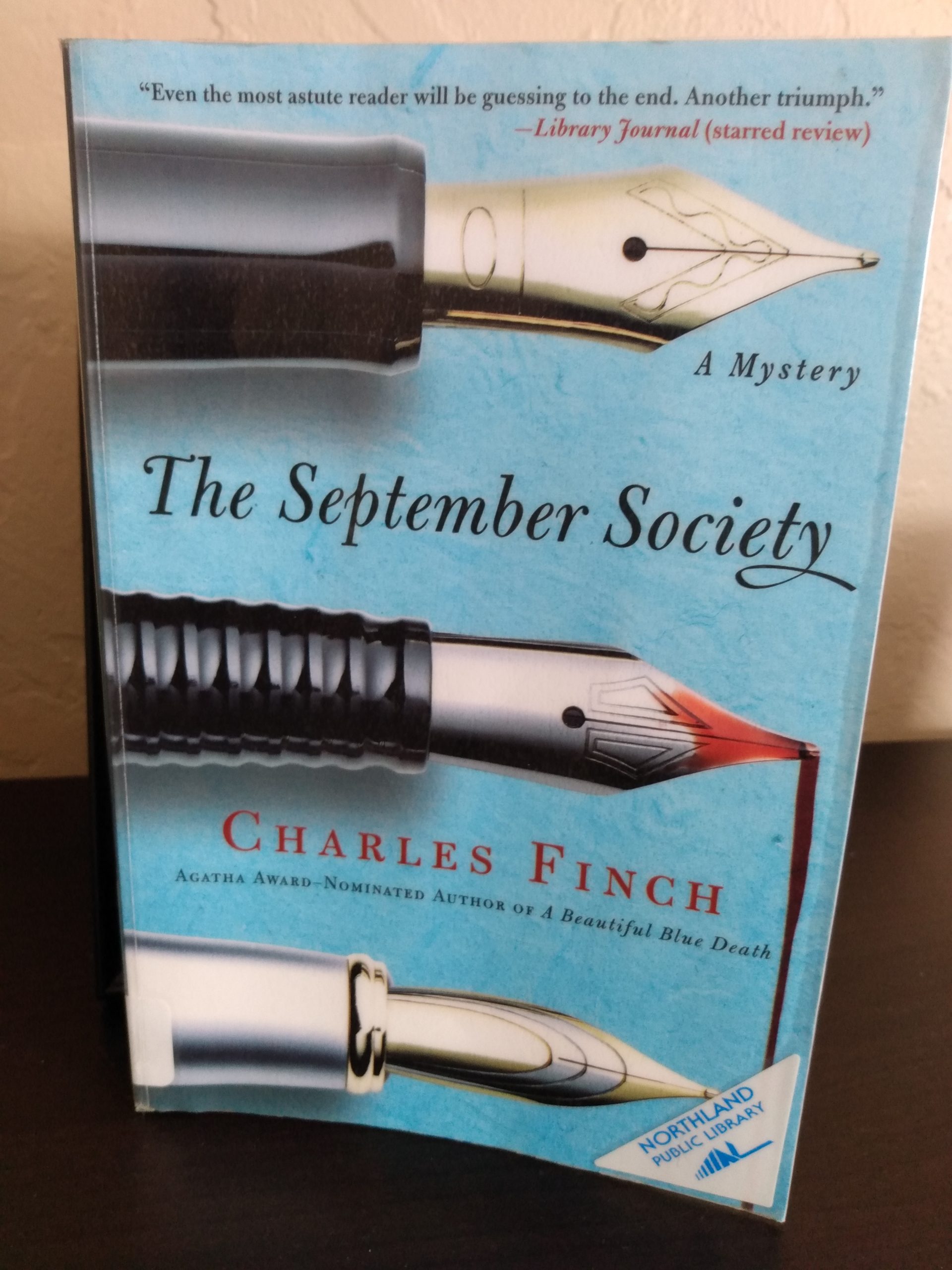I once read several reviews for this novel that described it as predictable and a disappointment compared to the first book in the series, A Beautiful Blue Death, which is why it’s taken me so long to pick it up. I figured I should give this book a shot because reviews aren’t everything – it is the epitome of irony that I say this on my own review blog – and I wasn’t disappointed.
In this novel, Mr. Charles Lenox is summoned to his Alma Mater of Oxford University to find a missing student, who has only left behind the clues of a dead cat, several misc. (or are they?) objects, and a card reading “the September Society.” When the police find the student’s body in a field near the school, Lenox is determined to find justice for him. Along the path of solving the mystery, he is helped by his old friend Dr. McConnall, Lady Jane, a colleague from Scotland Yard, and a new apprentice.
The mystery in this novel confused me until the end, certainly. It is fairly reminiscent of a Sherlock Holmes case, where there are few dramatics, a detective with a cool head, and many mysterious clues and happenings. This series is not one with many plot twists, but it is one where the mystery continues to deepen, and even when all the clues have been discovered it still takes a detective’s mind to piece it all together. It’s not my favorite type of mystery to read (apparently I like a little flair for the dramatic), but it’s so solid and so puzzling that it makes for an excellent plot.
It’s Lenox himself that I don’t get along with as well. In his first published mystery, he’d shown himself to be friends with Lady Jane, but in this novel he intensely debates whether he should propose to her or not. It was a bit of a surprise to me as Lady J wasn’t mentioned very much in the first novel. Lenox’s lack of confidence in his years-long friendship with Lady Jane during which she has coincidentally remained single is astounding. I didn’t really find it believable that, during this extraordinary length of time, the two would not have realized their feelings for one another.
Lenox also showed a substantial wave of nostalgia during this book, which I don’t know if I liked or not. It was a little too much waxing on about the wonders of Oxford. It just seemed very uncharacteristic of him as he thinks so logically and unemotionally about cases of murder, but gets extremely emotional about a place where he spent three years?? I’d hoped that Lenox had more good things going on in his life than spending an eighth of the book touting the merits of Oxford. However, I believe Finch went there, so what else was he supposed to do in that setting? Maybe, if I ever get to that area of England someday, I will be more appreciative.
Lenox is not a very exciting character as a detective – and he doesn’t have to be. The merits of the book aren’t in his thrilling personal life, or death-defying stunts to save people he loves – it’s in the mystery. And while Lenox is not the most interesting character, he is a great detective, and it’s nice to get back to a story that flirts with the characters’ personal lives but is really all about the puzzle.
